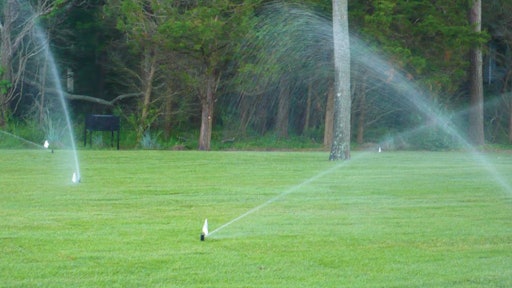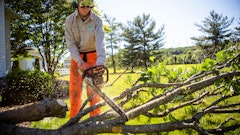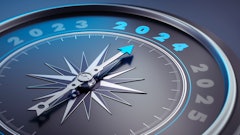
Smart lawn irrigation technology has been around for a while now. But only recently have more landscape irrigation contractors started to see some serious demand from homeowners for these types of products.
Ed Marchant, owner of Trinity Irrigation in Natick and Hudson, MA, is one such contractor. He says that the majority of residential irrigation systems in use today—in his market area, at least—are using older technology. That is slowly starting to change.
"Three years ago is when smart-control technology became more of an affordable option for most people," Marchant tells. "We had a little bit of success that first season we tried it, and then a little more the second season. Last year we saw a significant increase."
That's due to a couple of reasons. First, some consumers who have been hit with increasingly expensive water bills are looking for better alternatives. "A smart irrigation controller is the first thing that makes sense to them," Marchant points out. Secondly, there are those consumers who are purchasing an entirely new irrigation system. They typically take bids from three or four different contractors. "When I can propose some of this smart technology to them, it helps separate me from my competitors," Marchant says.
Making it work
In other words, many irrigation contractors are still not placing enough emphasis on smart technology. Marchant is. When he generates a new lead, his initial response to the client highlights the smart products he can incorporate into the client's irrigation system, along with the importance of responsible water use.
When you're talking about smart irrigation technology, you're primarily talking about things like weather- and sensor-based controllers. Without going into too much technical detail, these devices tailor watering schedules to actual conditions on a site. The end result is more efficient irrigation. "There is a larger upfront cost for a smart controller, probably 10-15% on average, which includes some service follow-up," Marchant says. "But you have to give the customer some peace of mind that they aren't going to be stuck with some new technology that they don't understand."
Marchant often looks to Rain Bird's ESP-SMTe Smart Control System on his installations, which factors historical data, actual temperature and rainfall data. He hasn't done much with sensor-based controllers. "I definitely agree with the philosophy of using a soil-moisture sensor," Marchant relates. "We've also seen the price come down on these types of products quite a bit, which is good. But we've also seen issues with them. So people are still a bit cautious with moisture sensoring, including us."
Truly "smarter" irrigation must go beyond just the controller or sensor, though. "When I install a smart controller and a new system, I emphasize the separation of sun and shade," Marchant says. "This will give the customer better zone control. This is a more complex system that will cost a bit more. And then there are other water-saving products we try to incorporate. For instance, water-saving rotary spray nozzles and drip line can be used in certain areas. So we're promoting a complete water-friendly system from the get-go."
Now more consumers are seeing the benefits of a complete water-friendly system—even though it may cost a bit more up front. Smart irrigation is about having a system that uses as many high-efficiency components as possible. The smart controller can manage scheduling far better, but if the sprays and nozzles aren’t applying water efficiently, then you’re still not being 100% “smart.”




























